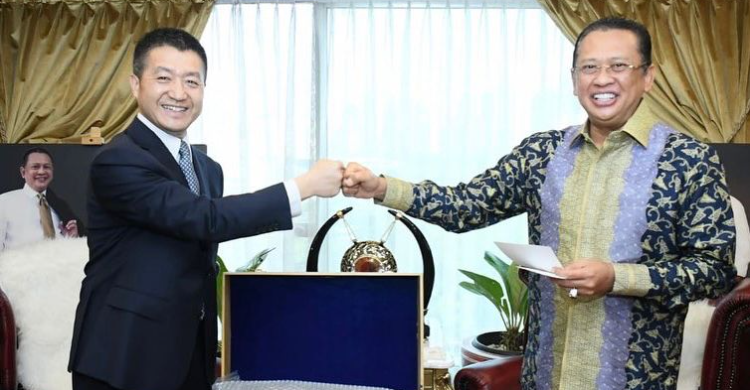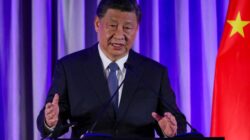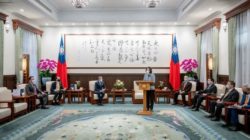While receiving the Chinese Ambassador to Indonesia, Lu Kang, today, People’s Consultative Assembly (MPR) Speaker Bambang Soesatyo asked Chinese investors to participate in the building of the Mengwi-Gilimanuk toll road.
“The Mengwi-Gilimanuk toll road’s presence is highly crucial and promising for investors since it can accommodate cars from west to east, and vice versa, in Bali,” he said in a statement released on Monday.
He stated that the toll road may be used as an alternate route from Gilimanuk Harbor to Bali’s city, Denpasar.
The toll road will also reduce travel time from Gilimanuk to Denpasar, Badung, Gianyar, and Tabanan from six to two hours.
Soesatyo wants the Chinese Ambassador to push Chinese businessmen to invest in Bali’s 96.21-kilometer-long Mengwi-Gilimanuk toll road.
The toll road is divided into three sections: section I from Gilimanuk to Perkutatan is 54.7 kilometers long, section II from Perkutatan to Soka is 23.17 kilometers long, and section III from Soka to Mengwi is 18.9 kilometers long.
The toll road connects three Bali districts: Jembrana, Tabanan, and Badung.
Soesatyo also praised the rise in bilateral commerce between Indonesia and China in 2021. Trade between the two nations is expected to reach US$110 billion in 2021, a 54.04 percent growth over 2020.
This is the highest figure in the history of Indonesia-China commerce.
“I believe the achievement can be enhanced,” Soesatyo stated.
He also stated that he believes the trade value would become more balanced in the future. The trade deficit in Indonesia was $2.44 billion, which was less than the deficit in 2020, which was $7.85 billion.
Non-tariff trade barriers for Indonesia’s primary commodities in agriculture, farming, and fishing have an impact on the country’s trade balance deficit with China.










